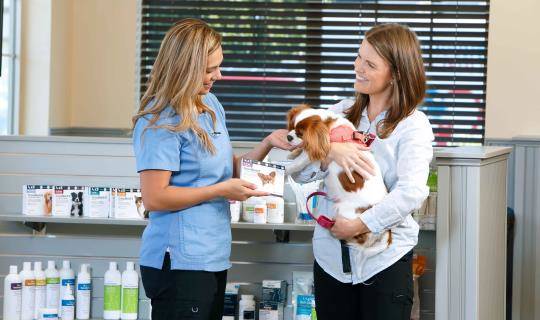Time to get serious about sustainability
By David Tinsley
All too often, an organisation’s sustainability policy is nothing more than lip service. A series of meaningless words on a page, or at worst a gimmick designed to soothe egos and gloss over the real issue.
How about if, instead of offsetting our carbon footprint, we reduced it permanently. Long term change, for the long term health of our planet.
The reality is that changing our behaviours is difficult, uncomfortable, and, when it comes to sustainability, requires the investment of time and resources.
These are very challenging times, dealing with the ramifications of the Covid pandemic and also the tremendous cost pressure our industry faces. Fuel prices at the pumps have risen by over 35% in the last six months, gas heating prices have gone through the roof, and the government has recently announced a near 7% increase in the minimum wage.
Therefore, as long-term partners to our customers, we need to work even harder to create efficiency opportunities, not only to protect our own business but also to explore those same efficiency opportunities to support our customers in these difficult times.
However, we face an even bigger challenge over the next few years, and that is how do we do what we do today, but in a more sustainable way. We know that the way we live on the planet today is not sustainable, and we must act now to help bring more balance to the way we occupy planet Earth.
At MWI, we are working hard to recognise the resourcing constraints that practices feel by improving efficiency and making changes that will also help the environment.
A recent British Veterinary Association survey revealed that 97% of veterinary surgeons feel that environmental sustainability is important.
We have invested heavily over the last two years to ensure our service to our customers has improved significantly. If we can continue to ensure that we get your order to you correctly, 100% of the time, this in itself enhances efficiency. However, having achieved excellent service levels, even during these challenging times, we need to do more.
We have led the market by collecting waste cardboard from our customers to recycle with our own waste cardboard, but this is just a solution to a problem. What if we could reduce the cardboard in the first place? At MWI, we are now using more reusable packaging for our customers’ orders to reduce the need to use new cardboard. We are also now re-using packaging that we receive from our manufacturer partners to reduce new packaging being introduced into the supply chain.
However, we still need to use cardboard for packaging very small orders that would otherwise get damaged in the larger tote boxes. What if we could consolidate these smaller orders together into one larger order that would fit into a reusable tote box, but not only that we could make only one delivery on our van, rather than multiple deliveries?
A question that you might want to ask is how many deliveries do I receive each day into my practice? Could these deliveries be consolidated? Can I buy all of the products I need from a single supplier, reducing the number of deliveries being made, but also reducing the work needed in practice to handle these separate supplier’s orders, deliveries and invoices?
We have worked with some of our customers to reduce the number of deliveries we make into their practices each week. This not only reduces the miles that our vans drive, reduces packaging, but importantly, also drives efficiency for our customers. Rather than inputting 5 orders each week, unpacking 5 orders each week and receiving 5 invoices that need to be paid. What would be the benefit in practice if this was only 3 or even 2?
Shifting to fewer delivers will involve change, and some of this might not be easy, but we have a choice to act now and make a difference or sit back and hope someone else will do it for us.
At MWI, we will support you every step of the way with this change. We offer free inventory management training for your practice to show how you can operate effectively and without the need to increase stock levels, with fewer deliveries each week. Our Merlin practice management system (PMS) will help you manage your inventory, and we are working towards a world where the PMS will automatically re-order for you based on your set stocking levels. This will further improve practice efficiency and allow staff that usually spend time managing inventory to spend more time with your clients and their animals.
We know this change can have enormous benefits for your practice and the environment and can be done with minimal disruption, but don’t take our word for it. Listen to what our customers have to say on this:
While many veterinary professionals want to do something about sustainability, the prospect of altering scheduled deliveries can be daunting for many practice owners and managers. However, working in partnership with MWI, we have been successful in reducing deliveries to our practices to just 2-3 times per week. We have significantly reduced our carbon footprint without adverse effects on our product purchasing or stock holding, whilst maintaining consistent high levels of patient care.’ John Dinsdale, Country Medical Director (UK), IVC Evidensia.
‘At IVC Evidensia, we believe we have a responsibility to set and share new standards for sustainability in animal health. Our Positive Pawprint strategy means caring for people, the planet and pets alike while growing our company as a force for good. Reducing our carbon footprint is a priority for our business, and we were delighted to work with MWI to change delivery patterns and deliver material reductions in carbon emissions.’ Sarah Heath, Sustainability and ESG Director, IVC Evidensia
By making this change with IVC, we have saved to date over 200 tonnes of Co2 and reduced our annual fleet mileage by over one million kilometres annually.
But we are not stopping there. We also know that returning products is incredibly inefficient for all concerned and again contributes to unnecessary miles being driven. Our analysis also shows that over 70% of the product returned to us will be ordered again within days of the return and has plenty of shelf-life. So we are working with our customers to remove this inefficiency from the supply chain and further reduce emissions.
We have already changed our company car fleet to introduce electric options for our employees, and I am pleased to say that uptake has been really strong with nearly 40% of our fleet now being fully electric.
We are also starting to electrify our delivery fleet. At MWI, we have the first electric van within the animal health industry, making deliveries to our customers everyday and are committed to electrifying our entire fleet by 2030, five years ahead of the government target to stop selling petrol/diesel vehicles in 2035. These vehicles meet the same exacting standards we have for our regular fleet and are fully GDP compliant, controlling temperature and ensuring the integrity of the product at all times.
It would be easy for us to do like many others and say we will plant a few trees to offset the problem. We are not interested in offsetting or putting a band-aid over the issue. At MWI, we are committed to addressing the problem and route-cause, which is creating Co2 in the first place. We are the only wholesaler committed to reducing vehicle miles on the road, and we are the only wholesaler committed to electrifying our fleet.
If you are serious about wanting to make a real difference to our planet and your practice, please get in contact with MWI today.





